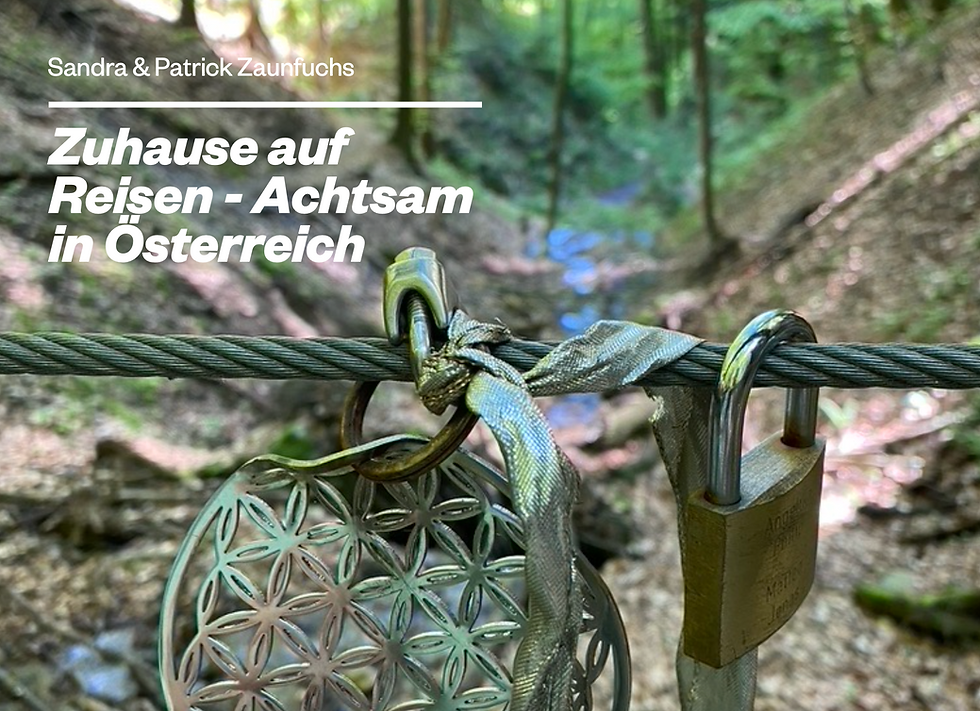The attitude in our "Free Trauma Psychology"
- Sandra Zaunfuchs

- Sep 9, 2025
- 2 min read
We're back from our reduced summer practice and have opened new therapy slots again. Anyone who would just like to learn more about trauma therapy is welcome to join our free and closed Facebook group "From Shadows to Light - Trauma Therapy and Mindfulness" at any time.
We are currently working on a master's access for our clients, meaning that starting next year, anyone interested in followyoursun will have access to all trauma psychology tools, as well as all current travel posts and mindfulness projects. We will send out all further information next year. Until then, we are pausing our weekly newsletters, but will continue to provide our blog posts on social media and on our website.
Today we want to share something about the attitude in trauma therapy: Attitude plays a significant role in mindful trauma therapy, as most clients have already experienced severe trauma since birth. Therefore, we adopt the following professional attitude:
We address them personally, meaning, with consent, we often use the informal "you", as this creates a connection that goes beyond the usual distance in a clinical setting. To maintain professionalism, we set boundaries regarding personal connections and protect ourselves if necessary against intrusions (which sometimes occur unconsciously due to the concept of transmission).
We work on equal terms, in the spirit of co-therapy, meaning we empower our counterparts from the very beginning to act therapeutically themselves. We are not "gods in white," but rather like mountain guides who accompany our clients on their journey. And we also want them to be able to continue successfully without us.
We are transparent from the start regarding the framework, medical (in collaboration with specialists), and psychological issues. There is no question that cannot be asked, and no taboos (we have seen, experienced, and heard everything, yes, absolutely everything).
We protect our clients when necessary to prevent further harm from perpetrators when they are at risk—all in consultation with them, of course.
We are humble because, based on our own experience, our own issues, and holistic Buddhist psychology, we know that no one is spared suffering. We are no better than our clients; we are simply professionals in our field.
We are not afraid to be childish and childlike, because our clients bring with them a wounded inner child that wants to be met where it is.
We see the bigger picture, meaning that even if our treatment strategy is sometimes uncomfortable for our clients, healing means change, even if it isn't always immediately apparent.






Comments